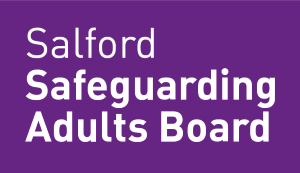Section 42 (2) requires Adult Social Care to make statutory enquiries or request others to do so, where it has reasonable cause to suspect that an adult with care and support needs is experiencing or is at risk of abuse or neglect and as a result of those care and support needs is unable to protect himself / herself against the abuse / neglect.
Multi Agency working
If the concerns relates to an adult who does not have care and support needs or it is unclear as defined under the Care Act, then a multi agency professionals meeting should be arranged by the ‘lead agency’?
The lead agency will usually be determined by which agency has the most knowledge about the person and their situation, the agency with the most current or previous engagement and based on the needs of the person given the risks within the person’s situation (this will not always be Adult Social Care).
It’s expected that agencies will prioritise attendance at multi agency planning meetings wherever possible. When agencies are not able to attend the meetings, it is expected they will provide relevant information.
When scoping invitees, consideration should be given as to which person might be best to work with the adult at risk this is particularly important where there are multiple adults involved.
The adult at risk should be advised of the meeting and their views should be sought in advance and be recorded as part of the multi-agency meeting. Careful consideration should be given about what information can be shared especially where there is multiple adults involved based on risks within the situation. The decision and reasons for this should be clearly documented. If there is uncertainty, then the lead agency should consider seeking legal advice within their agency about whether information should be shared.
Considering the principles of the Mental Capacity Act 2005 is a vital element in safety planning with, or on behalf of, adults who are at risk of cuckooing.
It’s also important that apart of the multi agency meeting, a multi-agency risk assessment is considered to fully document key risks, and actions required to try and mitigate those risks and which agency needs to lead on the actions.
It is really important that this is approached in a person-centred way by keeping the adult at the centre of the multi-agency discussions and decisions i.e. what does the person want to happen? What are the risks to the person? What needs to happen to keep the person safe? Who needs to be involved?
|
Starting with the adult
|
-
What are their needs (this is not just around eligible needs but needs that have arisen from the situation)?
-
Who else is part of their household? Are there any children that need to be considered and safeguarded?
-
What is their current housing situation (tenure/landlord/housing provider)?
-
What are the risks?
-
Where would they like to live, where will they feel safe?
-
Do they have any support networks?
If there concern or reason to doubt the person’s ability to make informed choices (principles of Mental Capacity Act 2005 may need to be explored)
Top tips:
-
Move away from eligibility/thresholds and criteria
-
Remember the initial priority is ensuring the person is safe
-
Once we understand all of this, as a multi agency group, we can start to look at solutions which are outcome focused and utilise all resources available
-
Consider whether the Care Act 2014 safeguarding duty applies.
|
|
Multi agency working - Get everyone around the virtual table
|
-
S42 or multi agency meeting should be arranged at the earliest opportunity with key partners to be convened at the earliest opportunity, should include Police, Social Care, Housing (Salford Housing Options Point (SHOP)) which could include the Housing Options Service and/or the Supported Housing Service for Temporary Accommodation) as a minimum and any other relevant agencies should be considered e.g. Achieve, Registered Providers (landlord) and GP
Top tips:
-
Professionals who are involved – needs to prioritise attending the multi-agency meeting
-
Start by understanding the situation
-
Make the person/people real
-
Helps us understand who might be missing from the multi-agency group
-
Helps us to understand the roles and responsibilities or reps and lead agencies
-
Agree who the lead agency will be
-
Meet regularly in order to prevent any drift
-
Make sure any meetings are minuted and action points are agreed.
-
Always start meeting by reviewing the action plan and recapping on the current position
-
Multi agency risk assessment should be completed
|
|
Safeguarding duty - Protection plan
|
|
Top tips:
-
Use the Adult Social Care multi agency risk assessment template to help identify all the risks
-
Social Care Assessment – thinking holistically and beyond traditional eligible needs
-
The Plan starts with what needs to happen – you can then work out who is best to support
-
Be clear about the priority part of work to ensure it remains focused
-
Ensure it captures and documents different agencies roles and responsibilities – who is going to do what and how that is addressing the identified risks
-
Support plans – think strengths based – what’s available to people and what can they tap into themselves?
-
Consider seeking legal advice if presented with challenges/barriers and push back from other Local Authorities
|
